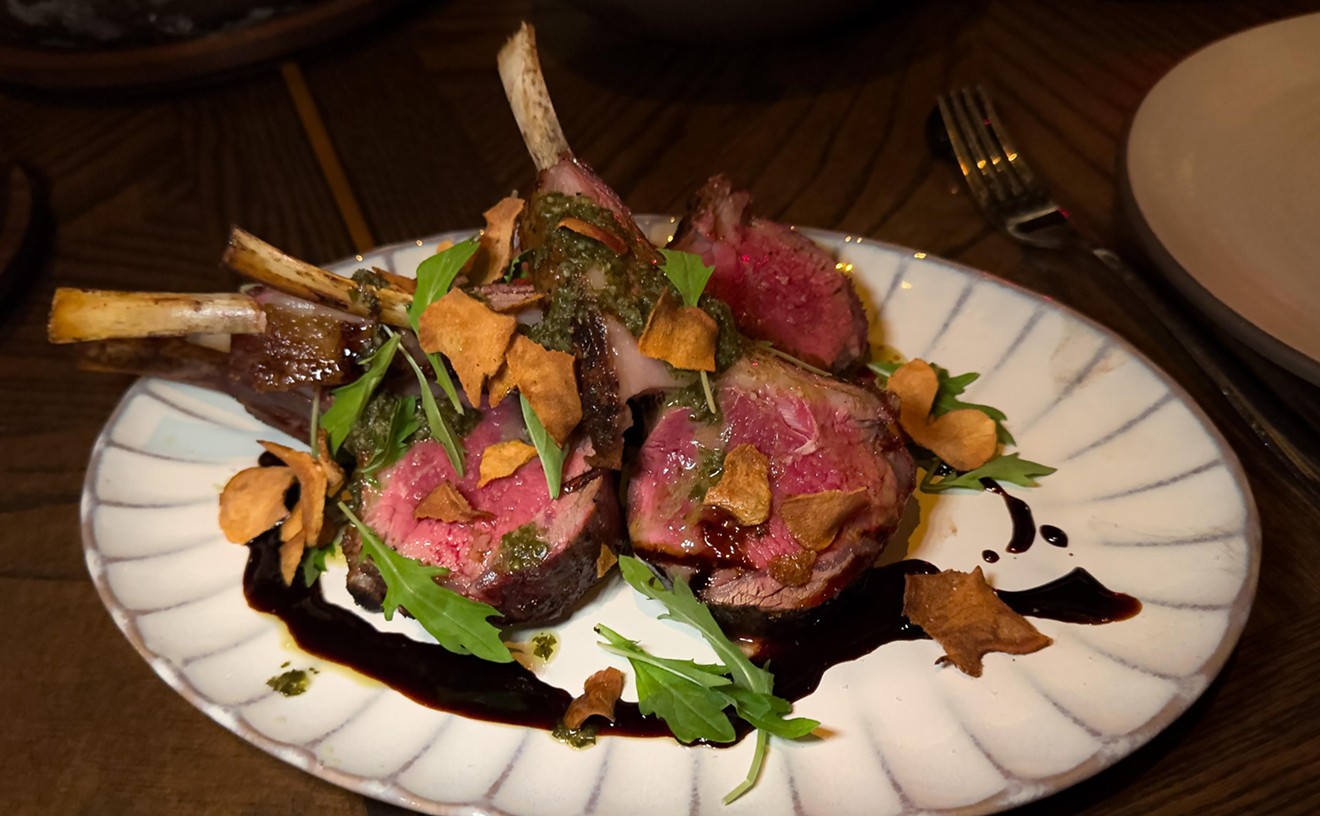I haven't tested any of the recipes, but I am impressed by the wisdom that inspired them.
For example, here's how Jeremiah Tower describes the culinary impact of our fast-food culture:
"It's frightening--[Americans] grow up with absolutely no other heritage. They know absolutely nothing about the richness of experience--to have had some sort of experience that blew their mind, whether it was sliced tomatoes in Italy or having a plate of mussels on the ocean in Capri or whatever it is that just triggers them. This is a problem for an industry which relies on people's senses and the richness of their personalities. It's hard to do that on a corn dog."
It's a good point. On one level, of course, fast-food joints are hardly pernicious--they give us what we want, quickly and cheaply. On another level, though, they contribute to a general coarsening of taste. How do you cook for people who discuss the differences between a Whopper and a Big Mac? You can't produce great art--whether food, music or painting--without an audience sufficiently discriminating enough to appreciate it.
What makes a great chef? According to the chefs here, it's the same thing that makes a great accountant, great carpenter or great doctor: passion. In the chefs' case, it's a passion for food.
One chef recalls a childhood spent "playing restaurant." Another liked to watch Julia Child's television show. Still another remembers, when he was 5 years old, telling his mother that her sauce was "too oily." A famous New York chef was so eager to break into the business that he spent a month in France cooking for customers' dogs. One chef told the authors that he spent his weekly childhood allowance on cream cheese, trying to make the ultimate cheesecake. "Do you love to eat? That's the main thing," says Michel Richard. "Do you love people? This is our religion, it's all we do."
According to Mark Miller, it's a mistake to equate a chef's talent with the breadth of his or her recipe files. "It isn't really important that someone actually knows any recipes," he insists. "It's more important that they actually understand the recipe. I mean, Beethoven did his last three symphonies when he was deaf. I can actually look at recipes--most good chefs can--and conceptualize all the players." There's a certain amount of chutzpah here, but it's the kind of professional chutzpah I admire.
What's down the line? "A lot of people are in love with the fact that they're going to have a microwave in the dashboard of their Chevrolet, so they can pop their Wendy's in there and reheat it," glumly predicts one chef.
It's entirely believable. After all, no one has ever gone broke underestimating the taste of the American public.










